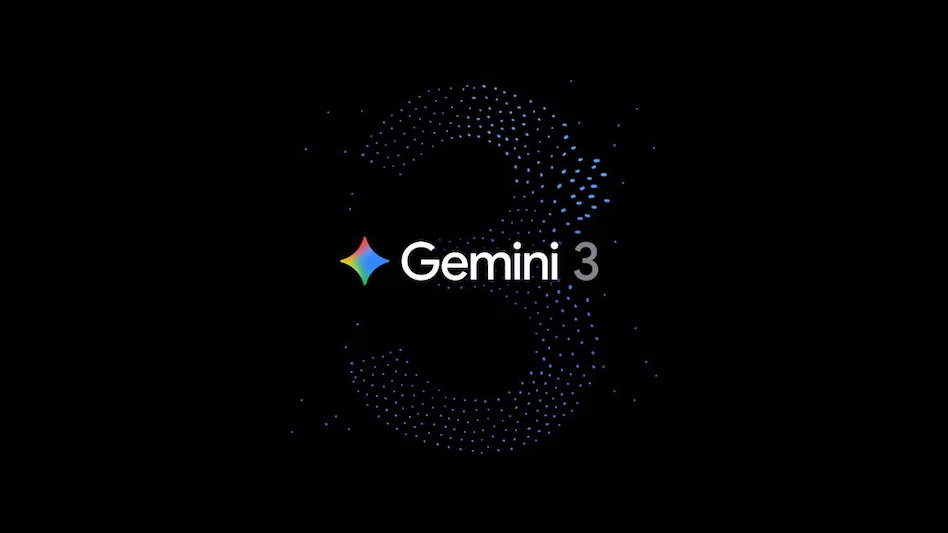A New Frontier in AI: Google Launches Gemini 3, Claiming Major Advances in Reasoning
Google has introduced Gemini 3, which represents the latest iteration of its generative AI model. The company makes significant claims about this release, noting a substantial improvement in context awareness. Furthermore, Google suggests that the new version demonstrates an enhanced capability for human-like reasoning, signalling a potential shift in the model's ability to process and respond to complex information.

The artificial intelligence landscape is evolving at a breakneck pace, and Google has just dropped a significant announcement that is set to reshape expectations for large language models (LLMs). The release of Gemini 3 signals a bold move by the tech giant, which claims this iteration achieves a major leap in context awareness and human-like reasoning. This launch positions Gemini 3.0 at the forefront of the competitive AI race, especially as Google continues to publish advancements through its official Google AI Blog.
The Core Claim: Context and Human-Like Reasoning
For users and developers working with Cloud AI, the claims surrounding Gemini 3 are particularly exciting. The key differentiator, according to Google, is its dramatic improvement in handling complex conversational threads and long-form data — a concept also echoed in research from Google DeepMind.
A model's ability to maintain context—knowing what was discussed pages ago in a document or many turns back in a conversation—is crucial for real-world applications. Google launches Gemini 3, specifically claiming a major leap in context awareness. This suggests the model can process and retain significantly more information, leading to more coherent and useful interactions than previous generations, potentially including the powerful capabilities we associate with Gemini Pro models or their rumoured successors like Gemini 3 Pro. For reference, context-length importance is also widely discussed in industry benchmarks like Stanford’s HELM evaluation.
Furthermore, Google emphasises human-like reasoning. This concept goes beyond mere pattern matching and aims at genuine problem-solving capabilities, allowing the Google Gemini AI to tackle ambiguity and draw logical conclusions in a manner closer to human cognitive processes. Google previously highlighted similar reasoning goals in its technical papers on multimodal models hosted on arXiv.
The AI Arms Race: Gemini vs. the Competition
The release of Gemini 3 inevitably heats up the perennial competition between major players in the AI domain. While established models like GPT continue to evolve, the claims made by Google regarding Gemini 3 set a new performance benchmark for competitors like ChatGPT AI and the anticipated performance of ChatGPT 5 — details often compared in reports from MIT Technology Review.
The focus on context and reasoning suggests that Gemini Google is targeting complex, multi-step tasks, moving beyond simple answer generation to serving as a powerful assistant for coding, research, and intricate decision-making processes. For those who utilise search functionality heavily, the deep integration of this advanced model could radically change how information retrieval works, delivering syntheses rather than just lists of links. This aligns with broader search evolution trends discussed by Search Engine Journal.
Beyond the Hype: Trending Topics and Google’s Focus
Whenever a massive update comes from a company like Google, the discussion inevitably pulls in a wide array of trending keywords, sometimes mixing core technology with more speculative or nostalgic topics.
While the tech world buzzes about the computational power of Google Gemini, some users still reminisce or search for nostalgic Easter eggs like "google antigravity" or even the general concept of "antigravity" which often trends when the company makes major announcements. It’s important to note that the focus of this major launch is strictly the enhancement of AI, specifically through Gemini 3, which is designed to elevate the computational intelligence of Google AI, not physical science breakthroughs or legacy Google anti-gravity searches. Reliable explanations on such concepts can instead be found via NASA’s educational resources.
The real gravity of this announcement lies in the verifiable performance increases promised by Gemini 3.0 in context and reasoning. This Gemini upgrade sets the stage for the next phase of AI development, aligning with the direction seen in global AI trend analyses from McKinsey’s AI Report.
The Future of Cloud AI and More
The launch of Gemini 3 is not just an internal victory for Google; it is a major development for the entire cloud ai ecosystem. Improved context awareness means applications built on the Gemini framework will offer superior performance, stability, and utility — a direction also supported by the broader cloud advancements reported by Google Cloud.
As the industry continues to push the boundaries of what AI can do, models that claim human-like reasoning serve as key accelerators for innovation across sectors. This advancement, claimed by Google, acts like an infinitely large canvas, allowing AI systems to finally paint complex, cohesive pictures rather than just sketching disconnected dots. Industry-wide implications of such AI shifts are often highlighted in Harvard Business Review’s technology insights.
Keep visiting Voice 24x7, for more such usable information related to Developments in AI, Google Gemini, ChatGPT or more.





